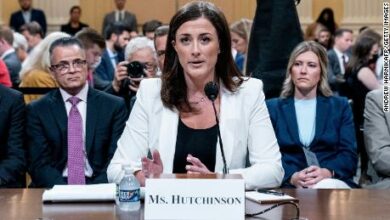Participants in the 11th annual intellectual forum of the Egyptian Organization for Human Rights discussed the need for a new constitution that restructures the balance between the three branches of power, giving greater authorities to the legislative branch over the executive.
Held on Friday under the title "On A New Egyptian Constitution", conference participants recommended the formation of a working group to draft a new constitution and to debate the most appropriate system for Egypt whether presidential or parliamentary.
President of EOHR Hafez Abu Saada stressed the necessity of founding a working group to draft a new constitution in which all political and social forces participate, particularly in light of the defective constitutional amendments that were issued in 2007, and articles 76 and 179 which were amended in 2005.
Georgette Qaleeny, a member of the People's Assembly, stressed the importance of change from a presidential system into a parliamentary system, to guarantee a strong parliament that promotes the status of the legislature.
Conference participants also expressed their worries about irregularities in the upcoming parliamentary elections.
Atef al-Bana, professor of Constitutional Law at Cairo University, explained that election fraud is a "crime" that has no statue of limitations, and that harsh laws must be put in place to address it. The first of these, according to him, should be judicial oversight of elections.
He also said that the consitution is not a contract between the ruler and his subjects, but that all ruling authorities are bodies established by the constitution. He emphasized the importance of guaranteeing judicial independence and addressing the issue of trying civilians before military courts.
Zakareya Abdel Aziz, former president of the Judges Club, asked, "how do we guarantee the independence of the judiciary in the shadow of a "chaotic" and "corrupt" economic situation?"
Abdel Aziz emphasized that while the constitution includes extensive passages on the independence of legal authority, judges do not have complete independence. "How can judges protect rights and freedoms they themselves don't have? The constitution did not protect judges when a presidential decree dissolved the Judge's Club," Abdel Aziz commented.
Assistant Secretary General of the Arab Lawyers Union Saber Ammar noted that the passages present in the current constitution are for the most part good, so the problem is not in the text of the constitution, but in legislation that has been emptied of all constitutional essence.




